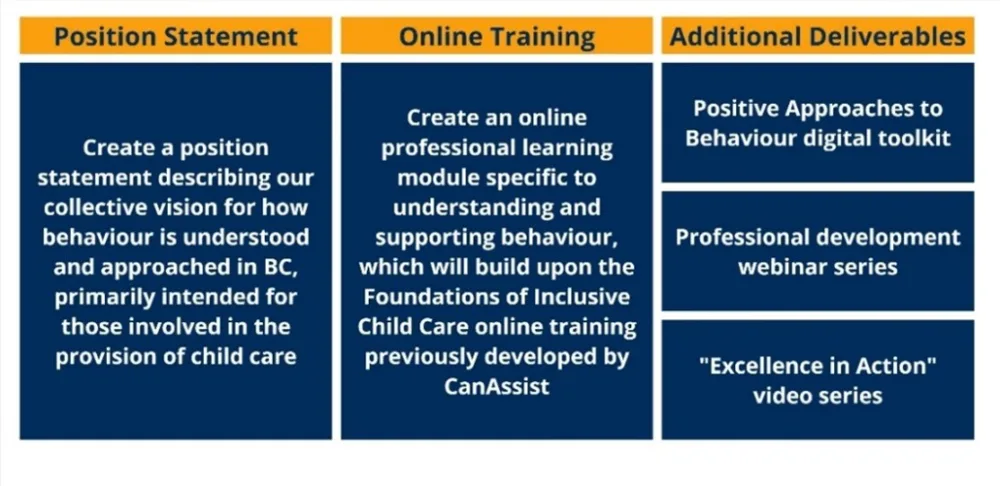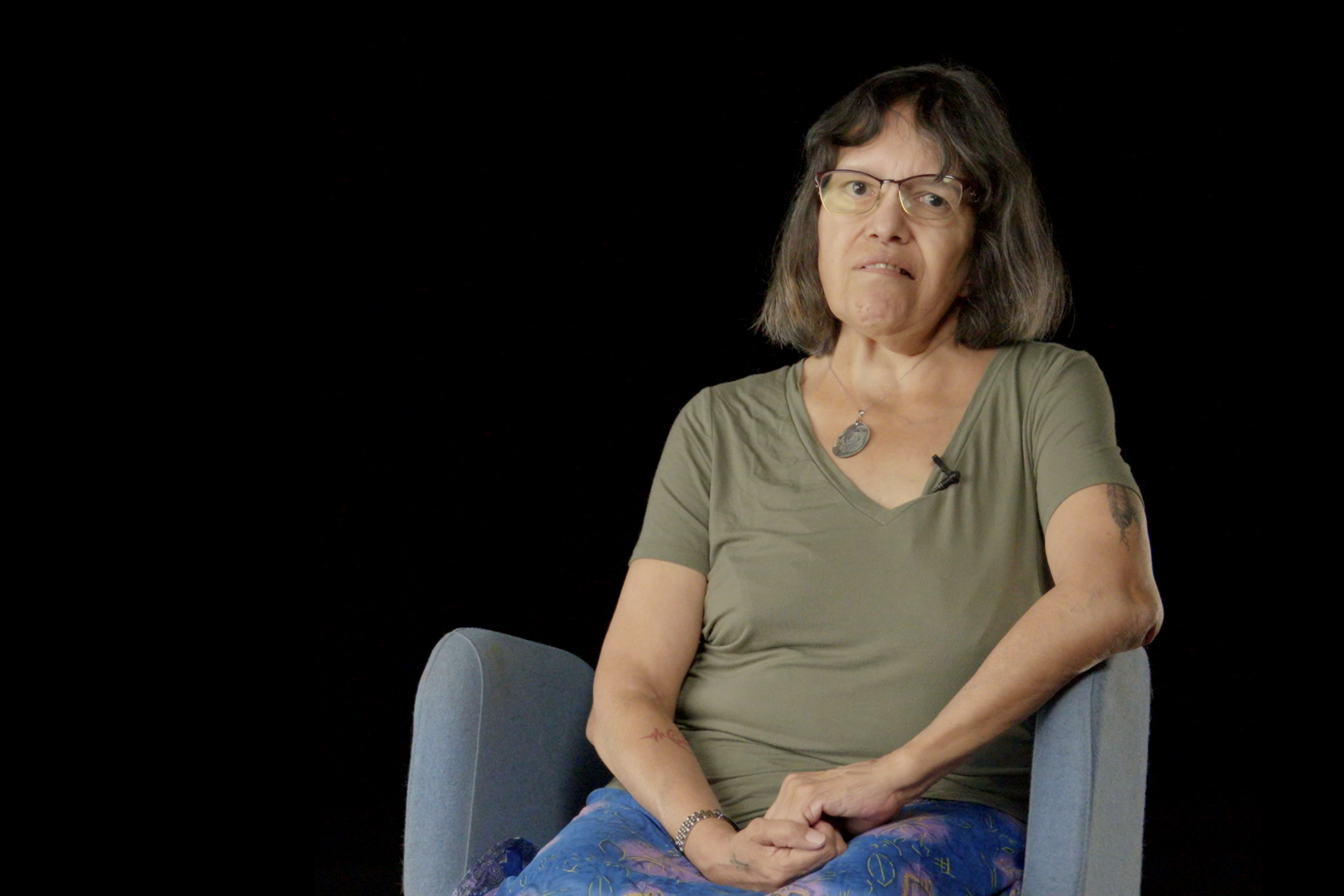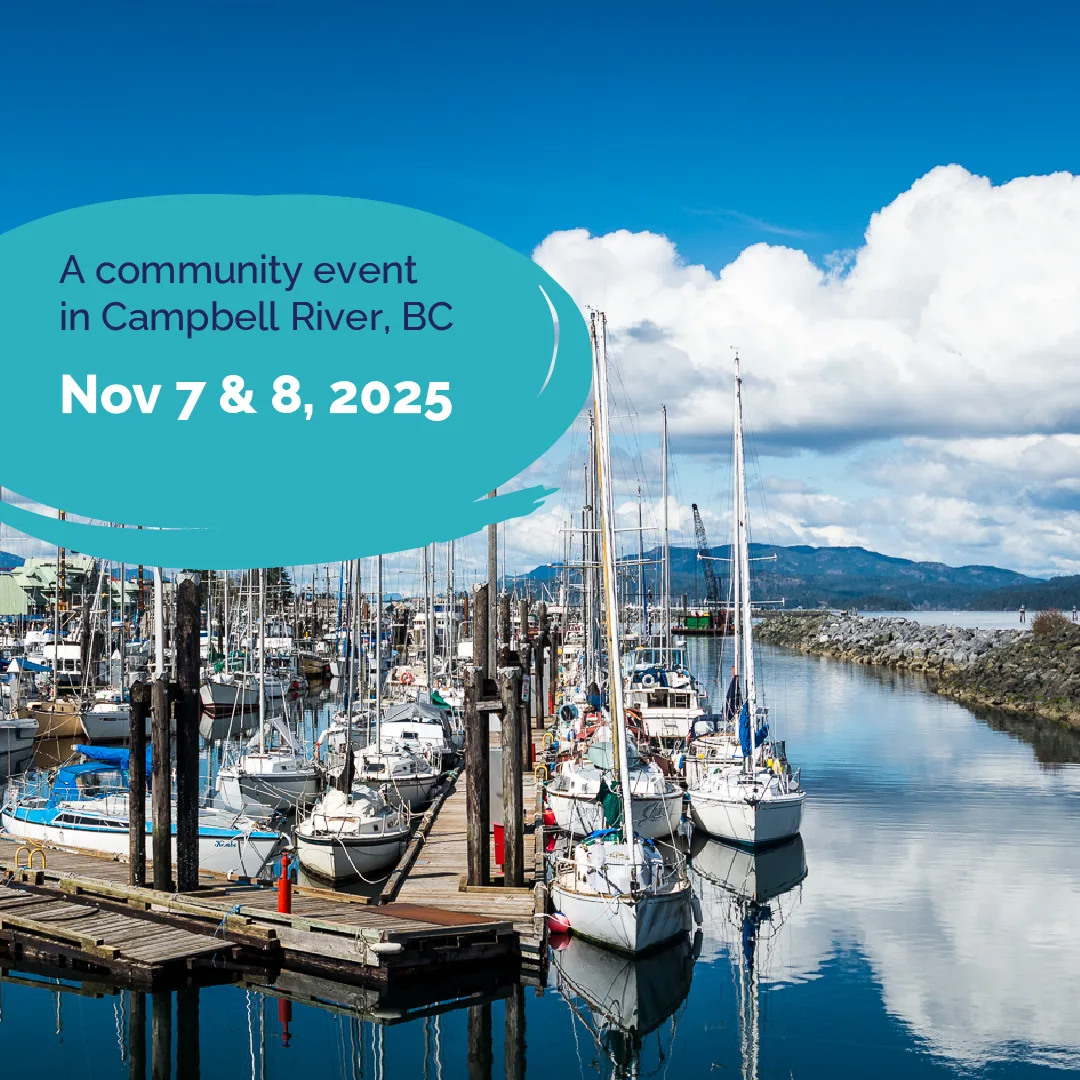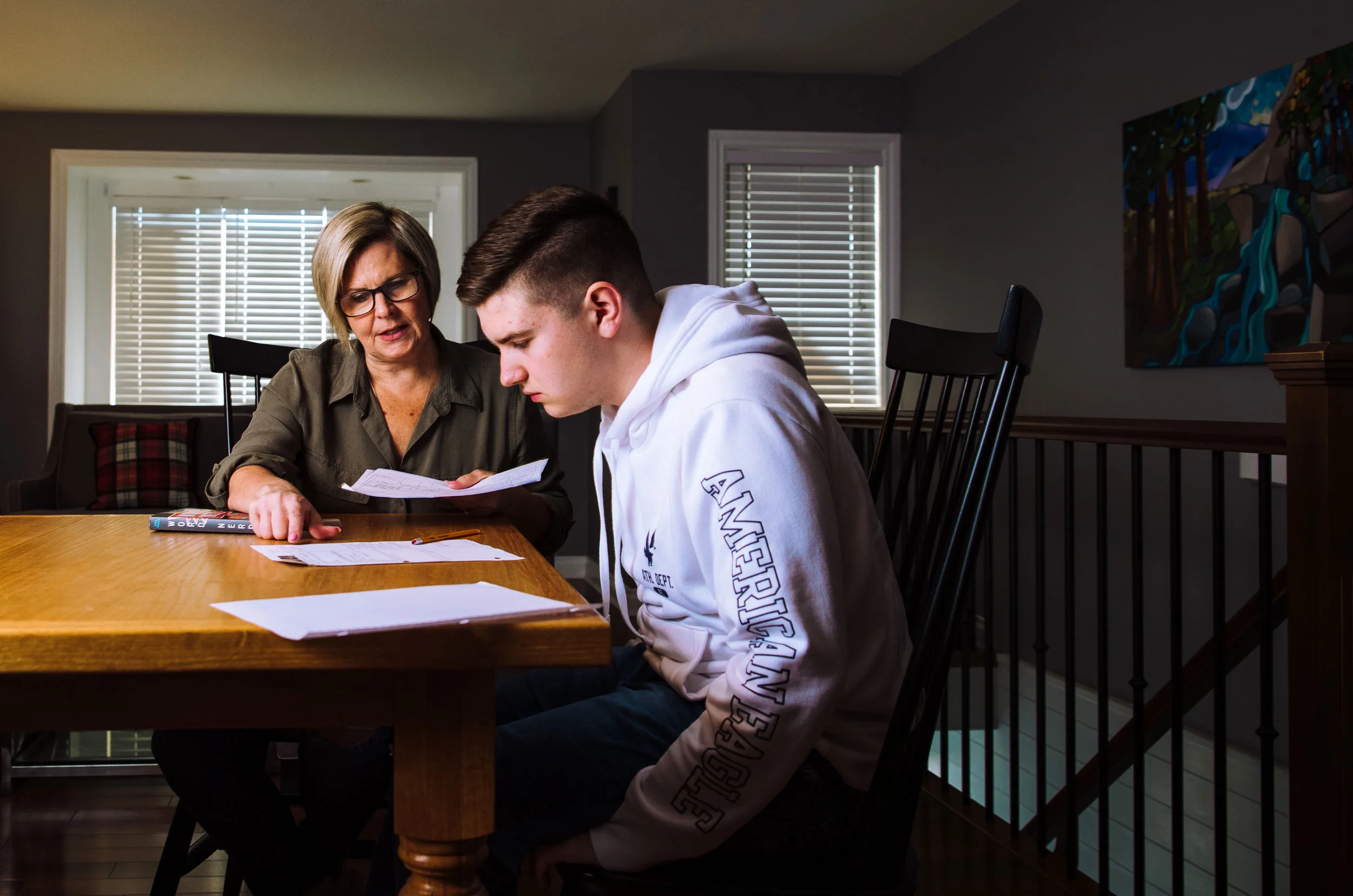
Background
CanAssist is an organization at the University of Victoria that is dedicated to addressing gaps in existing services and increasing awareness of disability issues. CanAssist serves people of all ages and abilities with the vision of a more inclusive and accessible society. CanAssist has previously collaborated with the Ministry of Child and Family Development (MCFD) and the Ministry of Education and Child Care (MECC) on several initiatives:

Past Projects
The Inclusive Toileting Initiative (2019-2021)
Toileting is a barrier because in some instances, children are denied access to care due to their inability to toilet independently. Because children learn at different rates depending on their stages of development, adapting care environments to better support all children’s diverse range of abilities reduces instances of exclusion due to toileting. Reducing toileting as a barrier within care environments means we are one step closer to inclusive child care.
Deliverables
Inclusive Bathroom Design Considerations: Includes questions and considerations when building, renovating, or furnishing child friendly bathroom spaces. The Ministry of Health, Community Care Facility Licensing, and Assisted Living Registry helped develop this resource.
Toilet Learning Position Statement: Creates a shared understanding of an inclusive, child-centered approach to toileting.
Toileting Resource Evaluation Tool: Developed to support early childhood professionals in creating high quality and effective of toileting resources.
The Toilet Step Stool (TSS): Designed to offer stability and a sense of security for children when toileting. Key features of the TSS include: adjustable height, deep grab handles, a removable toilet paper holder, smooth surfaces for easy cleaning, and collapsable for storage. Over 1,200 step stools have been delivered to child care programs across the province since 2021.
The Foundations of Inclusive Child Care Training (2020-2022)
Inclusive child care supports the individual strengths and needs of each child. All children are welcomed, supported, and valued, which allows them to participate meaningfully in all aspects of the child care program. In inclusive programs, children of all abilities have equitable access to quality child care and are provided opportunities to learn through play with other children.
This training marks a significant step towards a more inclusive future for child care in British Columbia. It allows educators and community members to share a common understanding and goal when it comes to building inclusion directly into their programming.
Foundations of Inclusive Child Care Online Training: Provides an overview of inclusive practices and implementation strategies for inclusion in child care settings. This training can benefit child care professionals and anyone who works with young children.
The Behaviour in the Early Years Initiative (2022 -2024)
The Behaviour in the Early Years Initiative includes a position statement, online training, and other resources that provide an understanding of children’s behaviours. The initiative involved collaboration with the child care community to make complex concepts accessible, engaging, and practical.
Deliverables:

Behaviour in the Early Years Position Statement: Creates a shared understanding of an inclusive, child-centered approach to behaviour.
Behaviour in the Early Years Online Training and Webinar Series: These courses aim to build upon child care professionals’ approaches and strategies for understanding children’s behaviours within their child care programs.
Behaviour in the Early Years Digital Toolkit and Excellence in Action: The digital toolkit is a standalone resource intended for a universal audience. This includes posters, conversation guides, and other interactive resources. Excellence in Action is a series of short videos featuring outstanding educators, programs, and approaches in the child care field.
Current Project 2024-2025: Leaders in Inclusive Child Care
In January 2024, the Ministry of Education and Child Care granted CanAssist funding to develop resources and tools to support child care leaders in building inclusive programs for all children. The goal of this initiative is to create resources aimed at reducing the number of children who are excluded from child care programs. Inclusive child care is based on the principle that all children have equitable access to quality learning that embraces their diversity and abilities.
Key Deliverables
The Special Projects Team at CanAssist is committed to developing the following resources for this initiative:

Get Involved
Sign up for our monthly newsletter.
To opt in, please email canaspc@uvic.ca.
Take our Leaders in Inclusive Child Care Survey.
For more information please contact:
Alycia Garcia
CanAssist Special Projects Team Lead
canassistsp@uvic.ca





